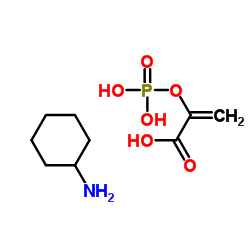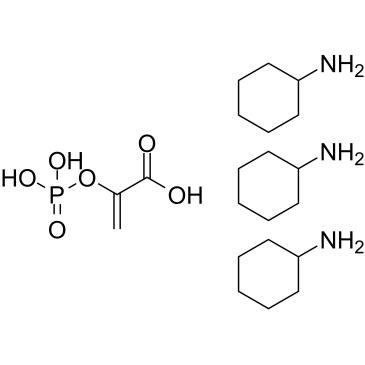| 结构式 | 名称/CAS号 | 全部文献 |
|---|---|---|
 |
磷烯醇丙酮酸 环己铵盐
CAS:10526-80-4 |
|
 |
磷酸烯醇丙酮酸三(环己基铵)盐
CAS:35556-70-8 |